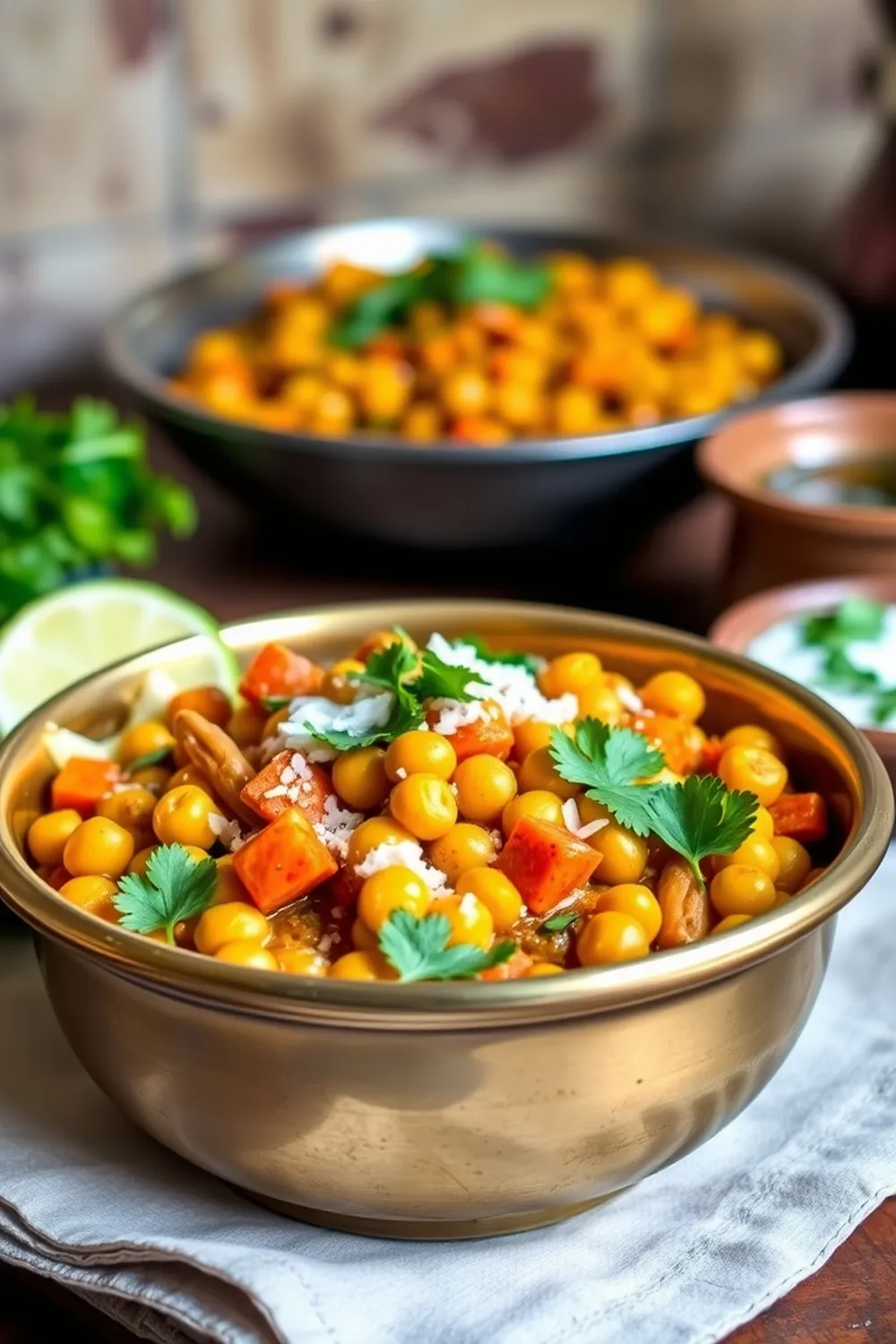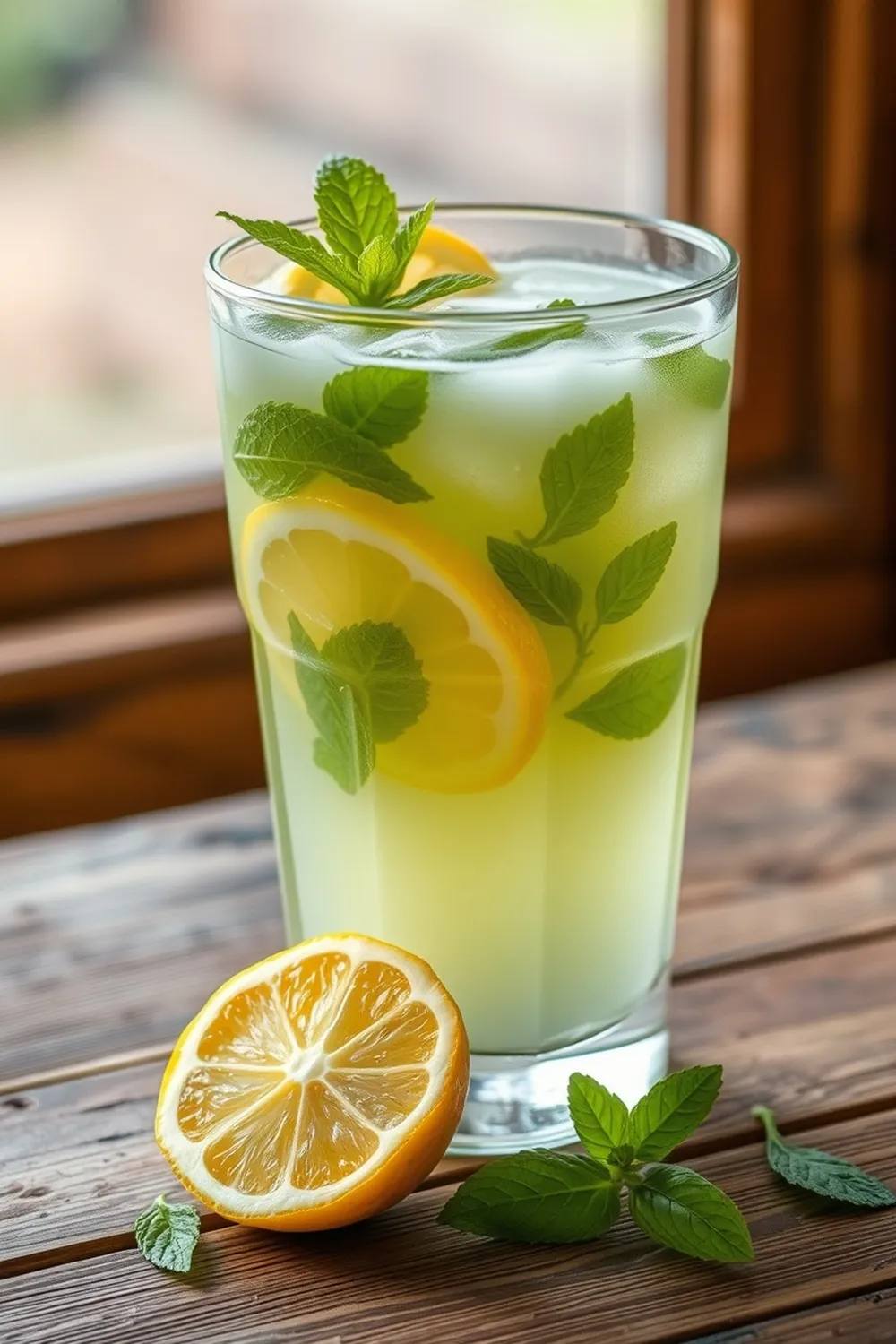- Heat oil in a pan. Fry pomegranate peels, peppercorns, and cumin seeds until crisp.
- Blend the fried mixture with grated coconut and a little water (if needed) into a fine paste. Add salt to taste.
- Mix the paste thoroughly into yogurt or curd.
- Prepare the seasoning: heat ghee in a small pan. Add mustard seeds, cumin seeds, dried red chili, hing (asafoetida), and curry leaves. Let the mustard seeds crackle.
- Pour the seasoning over the yogurt mixture and stir well.
- Serve chilled with steamed rice.
- Calories:180 kcal25%
- Energy:753 kJ22%
- Protein:6 g28%
- Carbohydrates:15 mg40%
- Sugar:5 mg8%
- Salt:200 g25%
- Fat:8 g20%
Last Updated on 2 months by Neha Deshmukh
Pomegranate Peel Recipe – Authentic Indian Yogurt Curry with Spices
Introduction
Oh, this recipe! It’s one I grew up with, a little gem passed down from my grandmother. It’s a surprisingly delicious way to use a part of the pomegranate often tossed aside – the peel! Don’t worry, it’s not as strange as it sounds. This isn’t just a recipe; it’s a little piece of my childhood, a comforting blend of tangy yogurt, warm spices, and a unique, slightly bitter flavor from the pomegranate. You’ll be amazed at how something so simple can be so incredibly flavorful.
Why You’ll Love This Recipe
This Pomegranate Peel Curry (or Dalima Chilka Koshimbir as it’s sometimes known) is a fantastic addition to your Indian cooking repertoire. It’s quick to make – ready in under 10 minutes! – and requires minimal ingredients. Plus, it’s a wonderful way to reduce food waste and explore a lesser-known side of Indian cuisine. It’s light, refreshing, and perfect for a warm day.
Ingredients
Here’s what you’ll need to create this delightful curry:
- 3 inch piece dry pomegranate peels
- 1 tsp cumin seeds
- 1 tsp pepper
- 1 cup grated coconut (fresh or desiccated)
- 1 cup yoghurt/curd
- 1 tsp oil
- 1 tsp ghee/coconut oil
- 1 tsp mustard seeds
- Pinch of asafoetida/hing
- 1 tsp cumin seeds
- 1-2 red chilli
- Few curry leaves
Ingredient Notes
Let’s talk ingredients! A few little tips from my kitchen to yours:
Dry Pomegranate Peels: Sourcing & Preparation
Finding dry pomegranate peels can be tricky outside of India. You might find them at Indian grocery stores, or you can dry them yourself! Simply save the peels when you enjoy a pomegranate, spread them out on a clean cloth in a cool, dry place for a few days until completely brittle.
Spices: Regional Variations & Flavor Profiles
The spice blend is pretty standard, but feel free to adjust it to your liking. Some families add a touch of turmeric for color and extra health benefits. The cumin and mustard seeds are key for that authentic Indian aroma.
Yogurt/Curd: Choosing the Right Consistency
I prefer using slightly thick, full-fat yogurt (or curd) for the best texture. If your yogurt is too thin, strain it through a muslin cloth for a couple of hours to remove excess water. This will give you a richer, creamier curry.
Oil & Ghee: Traditional Choices & Substitutions
Traditionally, this dish uses a combination of oil for frying the peels and ghee for the tempering. Ghee adds a beautiful nutty flavor, but you can substitute it with coconut oil for a vegan option or simply use more oil if you don’t have ghee.
Step-By-Step Instructions
Alright, let’s get cooking!
- Heat the oil in a pan over medium heat. Add the dry pomegranate peels, cumin seeds, and pepper. Fry until the peels become nice and crisp – this usually takes about 2-3 minutes. Be careful, they can splatter a bit!
- Remove the fried mixture from the pan and let it cool slightly. Then, blend it with the grated coconut into a fine paste. Add a pinch of salt to taste.
- In a bowl, mix the coconut-pomegranate paste thoroughly into the yogurt. Stir well until everything is nicely combined.
- Now for the tadka (tempering)! Heat the ghee (or coconut oil) in a small pan. Add the mustard seeds and let them crackle. Then, add the cumin seeds, red chili, hing, and curry leaves. Fry for about 30 seconds, until fragrant.
- Pour the hot tempering over the yogurt mixture and stir well. The sizzling sound is music to my ears!
- Serve chilled with steamed rice. It’s absolutely divine!
Expert Tips
A few little secrets to make this recipe even better:
Achieving the Perfect Crispness for the Pomegranate Peels
Don’t overcrowd the pan when frying the peels. Fry them in batches to ensure they get evenly crispy.
Balancing Spice Levels
Start with one red chili and taste as you go. You can always add more, but you can’t take it away!
Working with Fresh vs. Desiccated Coconut
Freshly grated coconut adds a lovely sweetness and aroma. If using desiccated coconut, you might want to add a tiny bit of sugar to balance the flavors.
Ensuring a Smooth Paste Consistency
If your blender is struggling, add a tablespoon or two of water to help create a smooth paste.
Variations
Let’s get creative!
Vegan Adaptation
Simply use coconut yogurt instead of dairy yogurt and coconut oil instead of ghee.
Gluten-Free Adaptation
This recipe is naturally gluten-free!
Spice Level Adjustment (Mild, Medium, Hot)
- Mild: Omit the red chili altogether.
- Medium: Use one small red chili.
- Hot: Use two red chilies or add a pinch of chili powder.
Festival Adaptations (e.g., Onam, Diwali)
This curry is often served as part of a festive meal, especially during Onam in Kerala. It’s a light and refreshing counterpoint to the richer dishes.
Serving Suggestions
This curry is best served chilled with a side of fluffy steamed rice. It also pairs well with dal (lentils) and a simple vegetable side dish. My family loves it with a sprinkle of chopped cilantro on top.
Storage Instructions
You can store leftover curry in an airtight container in the refrigerator for up to 2 days. The flavor might intensify slightly over time.
FAQs
Got questions? I’ve got answers!
What part of the pomegranate is used in this recipe?
We’re using the dried pomegranate peel – the outer layer you usually discard. It adds a unique, slightly bitter flavor that’s surprisingly delicious.
Can I use store-bought pomegranate peel powder instead of making it from scratch?
You can, but the flavor won’t be quite the same. Freshly dried peels have a more vibrant taste. If you do use powder, start with about 1-2 teaspoons and adjust to taste.
What is asafoetida (hing) and can I omit it?
Asafoetida is a pungent spice that adds a savory, umami flavor. It’s often used in Indian cooking to aid digestion. If you don’t have it, you can omit it, but it does add a unique depth of flavor.
Can this dish be made ahead of time?
Yes! You can make the curry a few hours in advance and store it in the refrigerator. The flavors will meld together even more beautifully.
What is the best type of rice to serve with this curry?
Basmati rice is a classic choice, but any long-grain rice will work well.
Is this recipe suitable for those with lactose intolerance?
Not with dairy yogurt. However, you can easily make it lactose-free by using coconut yogurt or another plant-based yogurt alternative.










